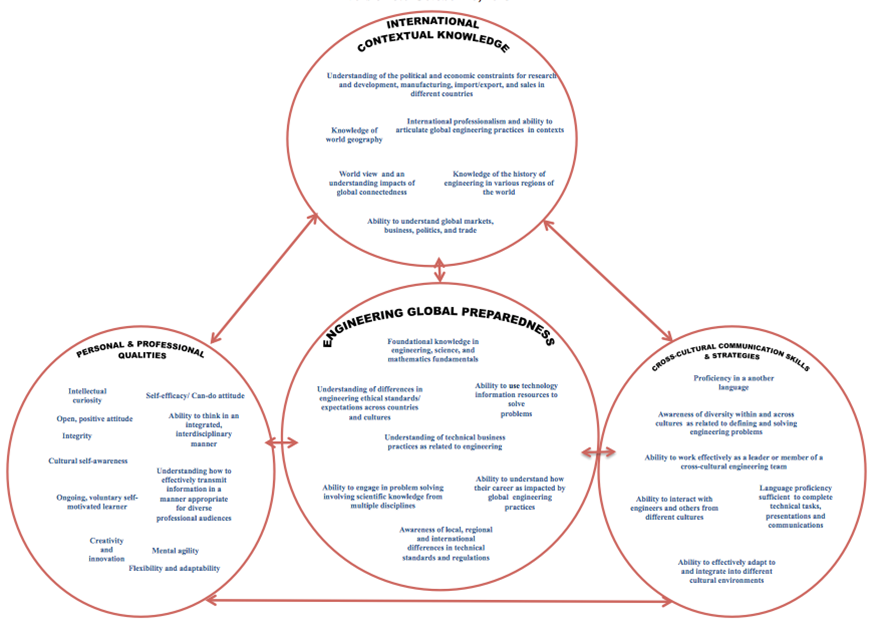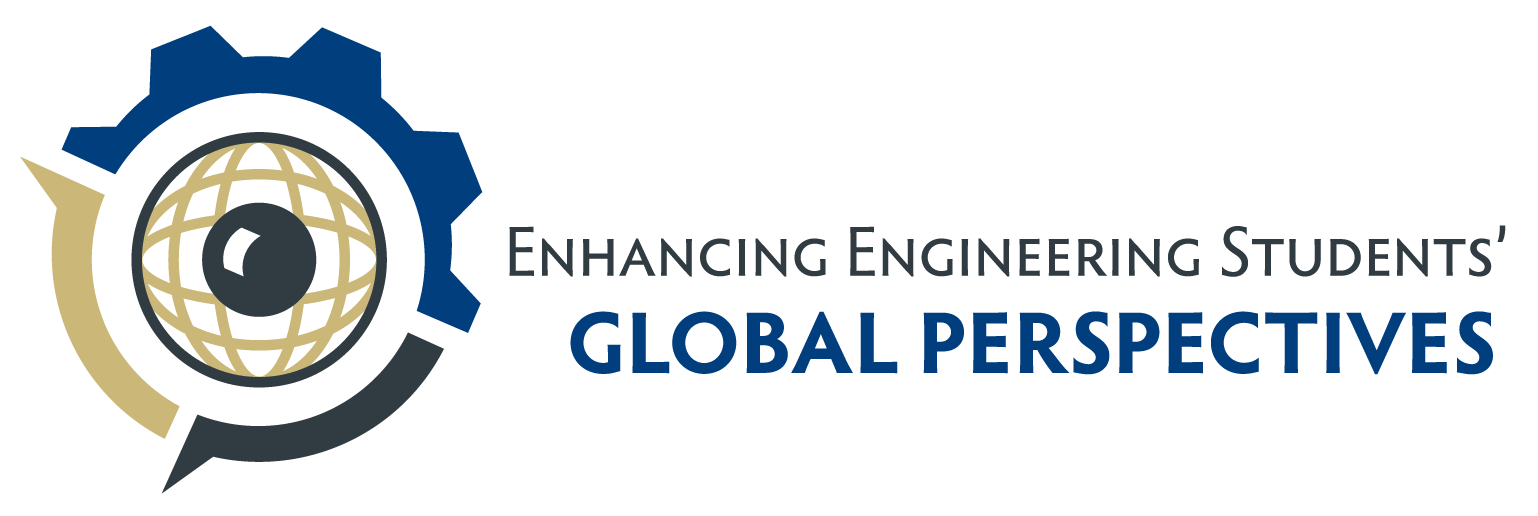Delphi Model
Data for this research was collected during a summit that convened twelve Subject Matter Experts (SMEs) in engineering and international education who participated in a six-month Delphi study. The SMEs represented diverse expertise representing:
- engineering education
- industry
- international education practitioners, specifically for engineers
- student assessment and evaluation
- national education societies
As a culminating summit activity, the participating SMEs were divided into four sub-groups (each group consisted of 3 SMEs from different professional backgrounds) for the semantic mapping exercise. The groups were asked to create semantic maps reflecting major constructs of engineering global preparedness using data collected from the Delphi processes and to indicate relationships among constructs or categories. A strategic grouping method was employed to ensure each group covered as many professional fields as possible. Thirty-one stickers were provided to each group. Each sticker was labeled with a representation of knowledge, a skill, awareness, or a value characterizing a globally prepared engineer that had been uncovered during the Delphi process. Each group had thirty minutes to create a semantic map by grouping the item stickers and by determining the relationships among the groups. Four student recorders collected observational field notes of discussions that occurred during the summit including the semantic map exercise. The initial instructions indicated the central concept to be “globally competent engineer”; however, during the summit, the SMEs and research team agreed that the central concept should be modified to “globally prepared engineer.”
A synthesized semantic map was generated by the research team from the four semantic maps based on the similarities and differences of the items whose degrees of consent were two or larger. This synthesized map was provided post-summit to all SME participants for feedback, including those unable to attend the summit. This feedback was incorporated into a final conceptual model. The culminating semantic map resulting from this analysis formed a conceptual model of global engineering preparedness, which compares favorably to that reported in the literature.

International Contextual Knowledge, Personal and Professional Qualities, Engineering Global Preparedness, and Cross cultural communication Skills and Strategies.
The framework comprises of four components, each with their measurable attributes, along with the overarching relationships between the components.
Delphi Model Related Publications
S. Huang, S. Levonisova, Streiner, S., S. Cunningham, G. Ragusa, M. Besterfield-Sacre, L. Shuman, C. Matherly, and D. Kotys-Schwartz, “Moving Toward a Research Informed Conceptual Model of Engineering Global Preparedness”, 2014 ASEE Annual Conference and Exposition, Indianapolis, IN June 2014
